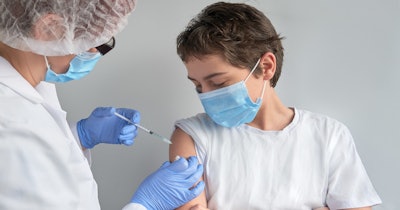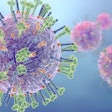
Oregon Health & Science University (OHSU) researchers found that the more time between vaccination and infection, the greater the strength of the immunity from COVID-19. The findings, published on Thursday in the Journal for Clinical Investigation Insight, suggest that people who’ve had COVID-19 can benefit from vaccination, even if they’ve delayed it.
Researchers measured the antibody response in blood samples from 96 healthy OHSU employees who gained what they termed “hybrid immunity” in one of two ways: through vaccination followed by a breakthrough infection or via vaccination after contracting COVID-19. They found that longer intervals between natural infection and vaccination appeared to strengthen the immune response for otherwise healthy people uniformly.
Both groups of people developed an equally potent immune response, whether they developed hybrid immunity by getting vaccinated after contracting COVID-19 or after a breakthrough infection following vaccination. Further, the magnitude, potency, and breadth of the hybrid immune response all increased with a longer time period between exposures to the virus – whether through vaccination or natural infection.
The researchers hypothesize this may be due to the body’s immune response maturing over time. Their findings suggest the long-lasting potency of so-called memory cells – the B cells that recognize an invading virus and generate protein antibodies to neutralize the virus and its many variants. Based on these findings, researchers say the ever-growing pool of people who have contracted the SARS-CoV-2 virus stand to benefit from vaccination, even if they’ve delayed it until now. But they recommend these vaccine boosters be spaced at least a year apart.
However, because immune responses in this study were measured in relatively healthy people, more frequent boosters may be advisable for vulnerable older or immunocompromised populations. The researchers emphasize that relying on natural infection alone to provide immunity is risky given the chances of severe illness, long-term complications, and death.
The study comes at a time when the U.S. Food and Drug Administration (FDA) is considering the nation’s COVID-19 vaccine strategy going forward. The research has implications for vaccine recommendations as the pandemic transitions to an endemic state. Researchers say their results indicate a future where inevitable vaccine breakthrough infections would be expected to help build a reservoir of herd immunity. This occurs when a significant portion of a population achieves immunity to a disease, either through prior infection or vaccination. Herd immunity can help blunt future waves and reduce the opportunity for further viral evolution.
“The immune system is learning,” explained OHSU’s Associate Professor of Medicine and co-senior author Dr. Marcel Curlin in a statement. “If you’re going to amplify a response, what this study tells us is that you might want to boost that response after a longer period of learning rather than early after exposure.”



















